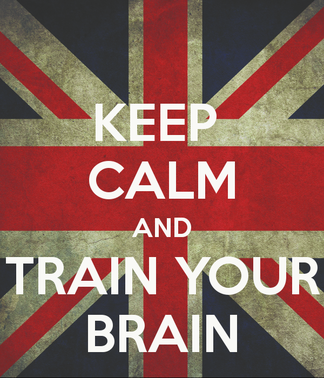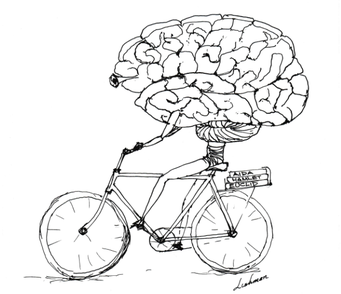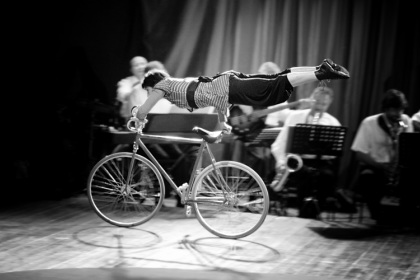Sign up...Join The Mindful Performer community to receive updates on upcoming workshops and new resources
|
|
|
The performers I work with often claim perfectionism as a badge of honour; an indication of exacting standards; something to be proud of - and indeed it certainly can be - but there is also a dark side to perfectionism - the key is how you handle setbacks or the inevitable ‘imperfections’.
0 Comments
If I had a penny for every time I heard someone complain that their performance was great in the rehearsal room, but then fell apart when they got on stage… It is usually uttered with an incredulous look that says ‘I don’t understand what went wrong!?’, but unfortunately, the answer is pretty simple! So many people train the part of their brain responsible for playing their instrument, but forget to train the part that is controlling their performance. We assume that our fingers, lips, tongue or vocal chords won’t work with the speed and accuracy required unless we train intently, and yet we expect to handle the pressures and adversities of performance situations with little to no training at all. This wouldn’t be such a big deal if we were naturally equipped to handle the pressures of performance - but we aren’t! Let me explain…
Well, ok, not exactly nothing, but very little... you still don't have to get off the couch! It's called Mindfulness Meditation... Learning to meditate was one of my new years' resolutions for at least ten years! I always thought it was probably a good idea, but I never thought I had enough time, wasn’t completely convinced it would make any difference, and feared (from the few attempts that I’d made) that I wasn't really any good at it! (Sound familiar?!) That was, until I was introduced to Mindfulness Meditation.
We all know that exercise provides extensive physical benefits - this is far from groundbreaking news - but as much as I knew the statistics, and even enjoyed exercise, it was too often the thing on my to-do-list that got pushed to tomorrow… or perhaps the next day. I always seemed to have far too much practice to do to have time for a walk, or would feel guilty if I was to take time out to do a yoga class. Until I discovered the impact that exercise has on our brains…
As I mentioned in my last blog, setting goals is one thing, but getting started and sticking to them is another thing altogether. Just ask the supposed 92% of Americans who don't follow through on their New Year's resolutions! We all know the feeling: you know what you should be doing, you realise how important it is to your goals, but you really can't be bothered to start... or to keep going! You find yourself doing anything but what you should be doing in a desperate attempt to avoid the task at hand. Next time you find yourself checking Facebook instead of practicing, struggling to get your audition application in on time, falling into old self-destructive habits or simply sitting on the lounge, 'unable' to move, give one of these proven strategies a try:
I recently read The Antidote by Oliver Burkeman where he talks a lot about the negative effects of goal setting. He suggests that goal setting can lead to a destructive and tunnel-visioned lack of perspective, an inability to embrace the inevitable uncertainties of life and that these goals can become adversely attached to a person's identity, leaving them distraught and demoralised when their goals don't eventuate. He cites, among other evidence, the author of destructive goal pursuits who links obsession goal orientation to the tragic deaths that occurred on Mount Everest in 1996 and states that 41% of people in one survey said that achieving their goals failed to make them happier, and 18% said that achieving their goals had destroyed a close relationship. These aren't great statistics in favour of goal setting! So why am I suggesting that goal setting is essential to a successful performance career?!?
You know those performances where you step off stage and someone says "how did it go?" ... and you realise you have no idea! The whole performance seems to be a blank, and you wonder if you forgot to even perform? Have you ever noticed that these are the performances where people then say " that was great - best I've ever heard you!" Why is it that amnesia seems to produce the best performances? When we first learn a new skill, it takes deliberate practice and repetition as our brain commits the information to our memory. We need to consciously process every detail in order to successfully wire the required neural pathways. This is fine when we are learning, but performance can include thousands of different technical aspects and there is only so much information our brain can consciously process at any given moment - it would be impossible to continue to consciously process every detail!
Ever struggled to break a bad habit? Felt like you were practicing, but nothing was changing? Wished you could stop the negative thoughts that run through your brain in an audition?
To understand how best to practice, how to stop a bad habit or how to change our negative thoughts, we first need to understand their origin: our brain. Welcome to The Mindful Performer!Throughout this blog, I will be sharing my thoughts and insights, based on the latest performance psychology research, to inspire and enable your peak performance. Whether you are a singer, instrumentalist, actor, dancer or public speaker a life in performance is both thrilling and rewarding, but it can also be a great challenge, marred with regular rejection, scrutiny, crippling challenges to self esteem, self-doubt and gruelling schedules. In this modern, competitive world, where there is always someone else to take your place and where bottom lines regularly trump the nurturing of talent, we need to address the limiting beliefs and thoughts that hold us back, and recognise the capacity of our brains to empower rather than derail us. If we don't, we are likely to be left behind.
|
|
|
© Amy Radford 2014. ABN: 369 713 854 88. Contact
|





